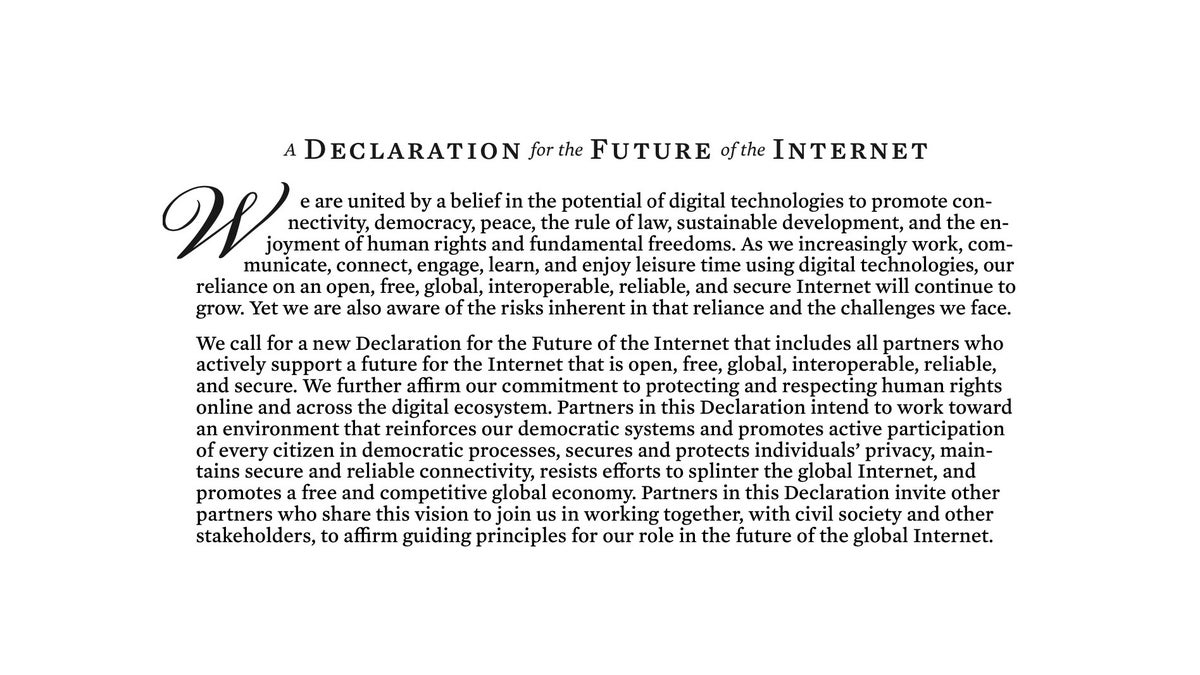US and EU agree on a common vision for the future of the internet

The West has consolidated a common position for the future of the internet. Through a (albeit non-binding) declaration, liberal democracies around the world are rallying behind a free internet for all.
On April 27th, The Declaration on the Future of the Internet, a rather overly ambitious name for a 3-page document, was signed. Amongst the signatories are the United States, the European Union and 32 other non-EU countries, including Great Britain and Japan.
The document represents the commitment of the parties to work towards a common vision of the internet as “a single interconnected communications system for all of humanity”, which promotes “connectivity, democracy, peace, the rule of law… human rights and fundamental freedoms”.
The former objective is in stark contrast with what the internet has become in many autocratic countries, who have routinely flirted with government intervention and outright censorship. China has achieved notoriety through its extensive regulation of the internet through its Great Firewall.
Russia, in a similar fashion, has embarked on its quest to rein in the internet, especially after their invasion of Ukraine. Suspension of social media sites and online news outlets are now common occurrences under Putin’s government
It is reassuring to see that the West is opposing this disconcerting precedent. A fragmented internet or, as pundits like to call it, the “splinternet” is a dangerous take on the notion of divide and conquer.
Hence, the signatories’ pledge to “sustain an Internet that: is open, free, global, interoperable, reliable, and secure”. The last part is particularly noteworthy. There is a fine line between net neutrality and the perpetuation of hazardous practices.
This is why the Declaration emphasizes the need for governments to actively protect and promote the privacy and security of internet users. Make no mistake - for the EU and the US, the internet has to be free, but regulated.
The former objective is in stark contrast with what the internet has become in many autocratic countries, who have routinely flirted with government intervention and outright censorship. China has achieved notoriety through its extensive regulation of the internet through its Great Firewall.
It is reassuring to see that the West is opposing this disconcerting precedent. A fragmented internet or, as pundits like to call it, the “splinternet” is a dangerous take on the notion of divide and conquer.
Hence, the signatories’ pledge to “sustain an Internet that: is open, free, global, interoperable, reliable, and secure”. The last part is particularly noteworthy. There is a fine line between net neutrality and the perpetuation of hazardous practices.
This is why the Declaration emphasizes the need for governments to actively protect and promote the privacy and security of internet users. Make no mistake - for the EU and the US, the internet has to be free, but regulated.
Follow us on Google News











Things that are NOT allowed:
To help keep our community safe and free from spam, we apply temporary limits to newly created accounts: